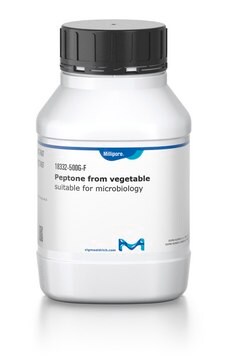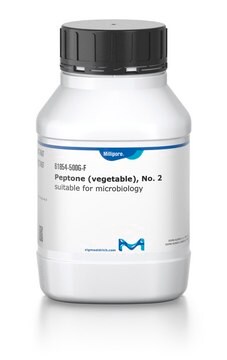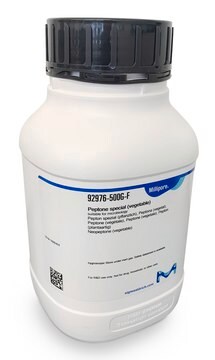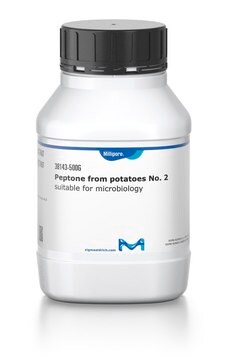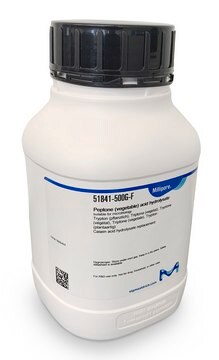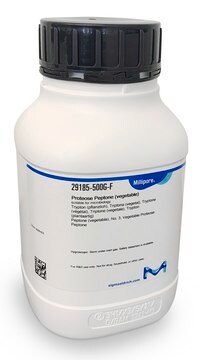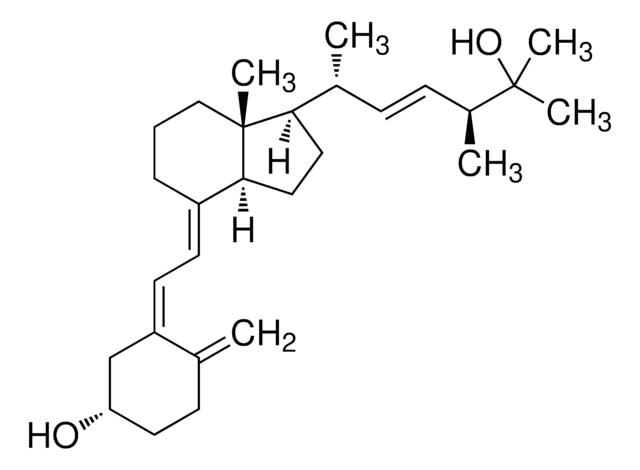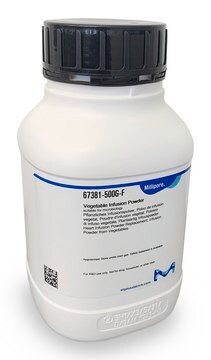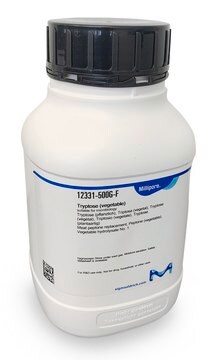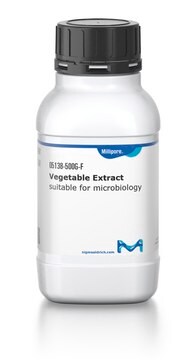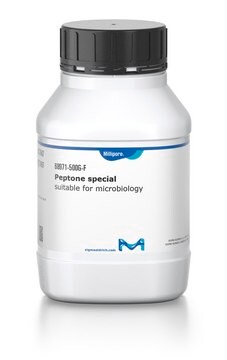19942
Pepton (pflanzlich), Nr. 1
suitable for microbiology
Synonym(e):
Pepton aus pflanzlicher Quelle, Fleischpepton Ersatz
About This Item
Empfohlene Produkte
Biologische Quelle
plant
Qualitätsniveau
Form
powder
Haltbarkeit
60 mo. (Expiry date on the label)
Zusammensetzung
amino-nitrogen, ≥2.5%
total nitrogen (N), ≥10%
Verunreinigungen
≤12% ash
Verlust
≤6% loss on drying
Farbe
beige
pH-Wert
6.6±0.5 (25 °C, 2% in H2O)
Löslichkeit
H2O: 2%, clear, yellow
Anwendung(en)
food and beverages
vitamins, nutraceuticals, and natural products
microbiology
Suchen Sie nach ähnlichen Produkten? Aufrufen Leitfaden zum Produktvergleich
Verwandte Kategorien
Allgemeine Beschreibung
Lagerung und Haltbarkeit
Hygroscopic, Keep in a dry place.
Lagerklassenschlüssel
11 - Combustible Solids
WGK
WGK 3
Flammpunkt (°F)
Not applicable
Flammpunkt (°C)
Not applicable
Persönliche Schutzausrüstung
Eyeshields, Gloves, type N95 (US)
Choose from one of the most recent versions:
Besitzen Sie dieses Produkt bereits?
In der Dokumentenbibliothek finden Sie die Dokumentation zu den Produkten, die Sie kürzlich erworben haben.
Kunden haben sich ebenfalls angesehen
Unser Team von Wissenschaftlern verfügt über Erfahrung in allen Forschungsbereichen einschließlich Life Science, Materialwissenschaften, chemischer Synthese, Chromatographie, Analytik und vielen mehr..
Setzen Sie sich mit dem technischen Dienst in Verbindung.